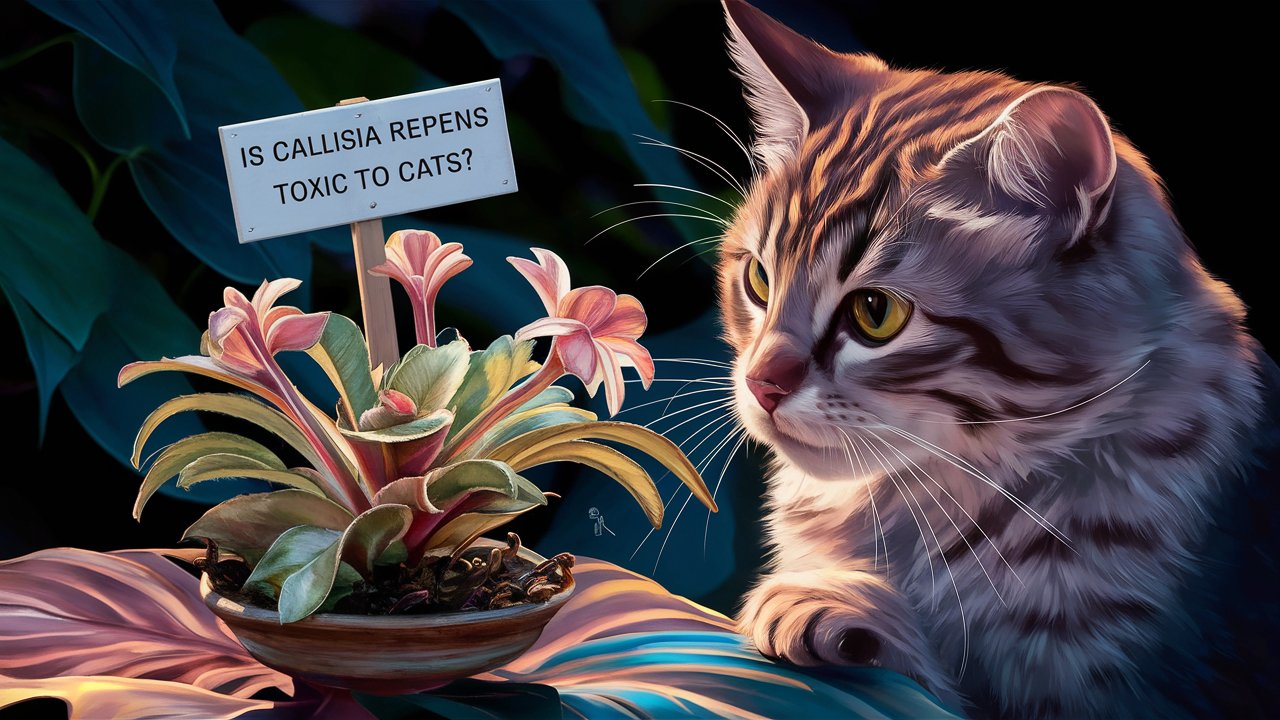
Is Callisia Repens Toxic To Cats?
What Is Callisia Repens?
Callisia Repens, also known as Turtle Vine or Creeping Inch Plant, is a popular houseplant appreciated for its small, lush leaves and trailing stems. This plant is often used in hanging baskets or as ground cover due to its attractive appearance. However, as beautiful as it may be, Callisia Repens can pose a serious risk to cats, which is something every pet owner should be aware of.
Is Callisia Repens Toxic To Cats?
Yes, Callisia Repens is toxic to cats. This plant contains compounds that can be harmful if ingested or if your cat comes into contact with it. Cats are naturally curious animals, and they often like to chew on plants. If your cat decides to nibble on Callisia Repens, it could lead to several health issues. The toxins in this plant can cause a range of symptoms, making it important for cat owners to be vigilant.
Symptoms of Callisia Repens Toxicity in Cats
If a cat ingests Callisia Repens, it might exhibit a variety of symptoms that indicate toxicity. Common symptoms include:
- Drooling: Cats may start drooling excessively if they have ingested part of the plant.
- Vomiting: The toxins can irritate the stomach, leading to vomiting.
- Diarrhea: Gastrointestinal distress is common, resulting in diarrhea.
- Skin Irritation: If your cat brushes against the plant, it may develop redness, swelling, or itching on its skin.
These symptoms can vary in severity, depending on how much of the plant was ingested or how much contact occurred. If you see any of these signs, contact your vet urgently.

Preventing Toxicity: Keeping Your Cat Safe
Prevention is always better than cure. The best way to protect your cat from the dangers of Callisia Repens is to keep this plant out of your home. If you already have Callisia Repens, make sure it is placed in a location where your cat cannot reach it. Hanging baskets or high shelves might seem safe, but cats are excellent climbers, so it’s better to consider completely removing the plant.
Safe Alternatives to Callisia Repens
If you love houseplants but want to ensure your home is safe for your feline friend, consider choosing non-toxic plants. Some cat-safe options include:
- Spider Plants: These are not only safe for cats but are also easy to care for.
- Areca Palms: A beautiful addition to any home, these palms are non-toxic to cats.
- Boston Ferns: These lush, green ferns are safe and add a touch of elegance to your space.
By selecting these or other non-toxic plants, you can enjoy the beauty of greenery without putting your cat at risk.
Conclusion: Is Callisia Repens Toxic To Cats?
In conclusion, while Callisia Repens is an attractive and popular houseplant, it poses significant risks to cats. The plant’s toxicity can lead to various symptoms, from digestive issues to skin irritation. To ensure your cat’s safety, it’s best to avoid keeping Callisia Repens in your home. Instead, opt for cat-friendly plants that won’t harm your pet. Taking these precautions will allow you to enjoy a green and beautiful home while keeping your beloved cat safe and healthy.

FAQs: Is Callisia Repens Toxic To Cats?
Is Callisia Repens Pink Panther safe for pets?
No, Callisia Repens ‘Pink Panther’ is not safe for pets. It can be harmful to cats and dogs if they eat it or come into contact with it. Pets may show symptoms like drooling, vomiting, and skin irritation.
What is the most toxic plant to cats?
Lily is the most toxic plant for cats. Every part of the Lily plant is extremely dangerous for cats. If a cat eats any part of it, it can cause severe kidney failure, which can be deadly. It’s very important not to have Lilies in a home with cats.
Is Callisia Repens toxic to humans?
Callisia Repens is generally not toxic to humans, but it can cause skin irritation in some people. If the plant’s sap touches the skin, it might cause a rash or itching, especially in people with sensitive skin. So always wash your hands after touching the plant.
Is Ficus Repens toxic to cats?
Yes, Ficus Repens, also known as Creeping Fig, is toxic to cats. If a cat eats this plant or comes into contact with its sap, it can irritate the mouth, drooling, and vomiting. It’s good to keep this plant away from your cat.
What happens if my cat eats Ficus?
If your cat eats Ficus, it might start drooling, vomiting, and may not want to eat. The sap from the plant can irritate the cat’s mouth and stomach. If this happens, you should contact your vet right away for help.
Do Cats Like Sea Moss?

I am a dedicated writer and expert in cats, with years of experience studying feline behavior, health, and breeds. Passionate about sharing my knowledge, I provide valuable insights and practical advice to help cat lovers understand and care for their furry companions. When not writing, I enjoy spending time with my beloved cats, continually learning and deepening my expertise.

Leave a Reply